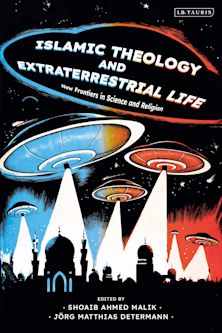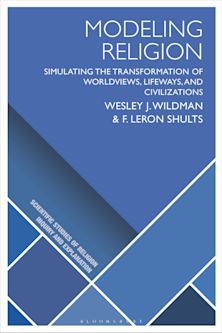- Home
- ACADEMIC
- Religious Studies
- Religion and Science
- The Material Image
This product is usually dispatched within 1 week
- Delivery and returns info
-
Free CA delivery on orders $40 or over
You must sign in to add this item to your wishlist. Please sign in or create an account
Description
In The Material Image, Donald H. Wacome sets out to reconcile the Christian faith and contemporary science by embracing, rather than evading, its naturalistic implications. The sciences are our best way to know ourselves and the world we inhabit, Wacome argues, but this does not make belief in miracles unreasonable. The sciences reveal that we are fully material beings, the product of unguided natural selection. God created human persons for the vocation of sharing in the everlasting Triune life and work, but this creation does not involve design. The mind is the embodied, socially situated brain. There is no immaterial soul; we are the material image of our transcendent Creator. This materialist conception does not preclude the resurrection of the body. The freedom that matters for the human creature is compatible with our being governed by the laws of nature. Morality and religion are natural, merely human, legacies of our evolutionary history, which God employs in pursuit of fellowship with us. Christians can faithfully and enthusiastically welcome the image of human beings given in contemporary science.
Table of Contents
Chapter 2. Knowledge
Chapter 3. Miracles
Chapter 4. Origins
Chapter 5. Mind
Chapter 6. Freedom
Chapter 7. Morality
Chapter 8. Religion
Chapter 9. Resurrection
Product details
| Published | Sep 29 2020 |
|---|---|
| Format | Hardback |
| Edition | 1st |
| Extent | 346 |
| ISBN | 9781978703902 |
| Imprint | Fortress Academic |
| Dimensions | 240 x 163 mm |
| Publisher | Bloomsbury Publishing |
About the contributors
Reviews
-
This book is a must-read for all who wonder about the future of vital, classical Christian faith in the face of challenges from contemporary science, especially concerning the nature of human beings. Donald H. Wacome’s welcome approach to reconciling science and Christian faith combines humility and forthrightness, and is imbued with the sort of practical wisdom urgently needed, and too often lacking, in these discussions.
Joel B. Green, Fuller Theological Seminary
-
Many partisans of science are convinced that any alliance with religion will amount to a blot on the family escutcheon. Friends of religion, on the other hand, may worry that theology is being asked to make too many concessions to her aggressive partner. Readers of Wacome’s book will inevitably be caught up in these quarrels, and will learn a lot in the process. Recommended for all who are concerned about the religion-science interface.
William Hasker, Huntington University


































